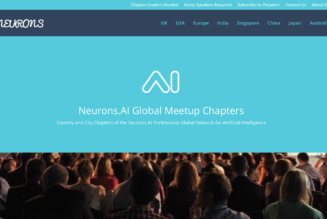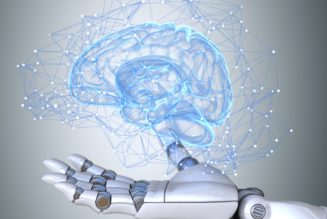It’s no secret that the world’s population is reaching crisis point – and still growing fast. Most developed nations are also encountering the problem of an ageing population, where there are more elderly people than those of working age. The fact is that people are living longer, and, if technology is to have its way (and it will), we will all be living even longer ourselves.
What Technology Is This, Precisely?
Well, as you’d expect, the main body of work in the anti-ageing space is in finding drugs that will stop the process of ageing in its tracks. From Google’s Calico, whose mission is to reverse engineer the biology that controls lifespan and “devise interventions that enable people to lead longer and healthier lives”, to other Silicon Valley players such as Human Longevity, which, in conjunction with StartUp Health, launched the Longevity Moonshot, and many more besides, intrepid warriors against death are working hard to reverse, reduce, and eliminate the effects of ageing and causes of death. All of the above centre on medical prevention through drugs.
There are, however, more mechanistic methods on the cards. Nanobots that are injected into your bloodstream that can identify health problems and mend them as they go along, infusing affected areas with drugs or performing tiny surgeries as part of their day-to-day lives, for example.
Then, of course, there’s the mind upload thing – the idea that we could all live forever as virtual avatars, in a world where disease would be eliminated because we would be free of biology altogether.
Artificial intelligence and robotics, as the technologies progress, have the potential for radical life extension by making us incrementally bionic until the faulty biological body is subsumed to the stronger, healthier bionic ideal. We can add bits on, chop bits off, until we’re happy with a body that will keep our conscious minds alive indefinitely. With the integration of robotic parts and artificial intelligence add-ons, we could also experience what renowned futurist, Ray Kurzweil, calls “life expansion” – where we don’t just live longer, we live in ways we had never before conceived, capable of doing any single thing we could possibly imagine. Sounds good, right?
The Drawbacks to Life Extension
Firstly, if we are all living longer and being healthier, then where on earth are we going to put everyone? In the UK alone, we are currently struggling to build enough new homes to meet the growing population – we fall short by several hundred thousand year on year. So what happens when we end up with more people than we can house or to provide the necessary infrastructure to support?
With more people living longer, the retirement age must necessarily go up. So, we’ll all need to be working for longer, too. We are also in the midst of an automation revolution. Artificial intelligence and robotics are threatening to destroy existing jobs. The solution proposed is that different roles will develop as a result, but will we be able to retrain such high numbers of workers for the new working landscape?
Not only will we have lots more people to house and to build infrastructure for, we will also have a large surplus workforce.
If we are talking about a future in which we can all live a terrifically long time, but few of us able to afford to support ourselves or to even live in a suitable home, then is it really worth it?
If a long life becomes a pleasure to be enjoyed by those with the means to do so, and the rest of us suffer and die just as we have always done, does that mean that financial wealth make one’s life more valuable? If wealth could be correlated positively with intelligence, creativity, innovation, morality, or even (arguably) beauty, then perhaps there would be an argument in favour of this eventuality. Unfortunately, the world just does not work like that.
So, What’s The Answer?
If we look back to the early days of the smartphone or the personal computer, we see that prices were phenomenally high. But things change. Tech becomes cheaper and more people have access over time. So there’s reason to believe that this will be the case for life-extension drugs and technology.
This does not address the problem of what we do with our excess population. Elon Musk reckons that colonising Mars is the solution – so we have two planets to spread ourselves over. And as our tech continues to evolve, we may be able to then colonise further into the galaxy. Sounds legit.
Feeding, housing, and employing a considerably large excess population, even if we are to colonise other planets, won’t be without its drawbacks, either.
Sure, we can automate food production even further than we already do, but we may have to make drastic changes to our diet in order to do so. One of the key aspects to this, regardless of tech or life extension, is to begin eliminating meat from our diets. It is a well-known statistic that 95% of Amazon rainforest destruction is down to cattle farming. Combined with the general health risks associated with red meat, we will need to stop eating cows.
This will bring cattle populations down, but will also allow these animals a better quality of life. There are lots of people hard at work on strategies to replace mammal meat in our diets with that of insects. Whilst that may gross a lot of people out, there is essentially no real problem with it. If we are to continue to thrive on this planet, we need to change our perceptions about how we live; how we eat is a central part of that. And insects may allow us to feed more people with less environmental impact.
As for housing, part of the problem is – arguably – our insistence on national borders. Rather than cosseting ourselves off from one another, a more even distribution of humanity should be considered. This will require another massive overhaul in how we live, but again, if we are to continue to thrive and to find a solution to overpopulation, we will need to let go of stubborn, xenophobic, outdated ideas and work together as a species.
The employment issue is perhaps the toughest one to answer. Whilst, invariably, new roles will emerge, we will need to have a radical rethink of how people sustain themselves. Universal basic income is one solution being posed, championed by Bill Gates and discussed at length by others.
However, all these solutions require us to completely revolutionise how we have been living for centuries. The world is still largely run by privileged, older, white people who are reluctant to see a world beyond that which they are used to. If we are to take the idea of living longer and better seriously, we are going to need a lot more innovative, broad-minded ideas to come to fruition.
Published in Members Blogs










Menno Mafait
First of all, roughly 5,000 years ago, God has limited the maximum age of humans to 120 years. (See Genesis 6:3.) There are only one or two recorded examples of people after that moment who have just exceeding this age limit. These are the exceptions that prove the rule. So, we may improve the quality of life, but we will not be able to extend the age limit. Actually, these are the exact words of the spokes man after a recent anti-ageing experiment.
Besides that, also the age of this planet is limited. God has announced the end of the world a long time ago, supported by concrete prophesies. More and more indicators (like the conflicts in the Middle East) show that the time is ‘ripening’. God hasn’t announced a date. But he described what will happen in the years before he will destroy this planet, and construct a new one. For example, the light of the Moon and sun will turn red in the last 7 years.
Last but not least, former astronaut André Kuipers has called project Mars One: “a suicide mission”. I guess, the enthusiasm of colonizing Mars will fade after the first ‘citizens’ of Mars have died. I guess, some will commit suicide, while others will die of loneliness, accidents, technical failures, and/or a breaking life line (supply chain) from the Earth to Mars.
It is wiser to admit the failure of humans to live by God’s rules and to accept Jesus as the saviour of our sins, than to make plans of colonizing Mars. I actually have the feeling that making plans to colonize Mars is driven by a hidden fear to flee from God. However, trying to flee from God by moving to another planet would be foolish, since God is the creator of the universe.